#Finance App Developers
Explore tagged Tumblr posts
Text
Finance App Development - SSTech System
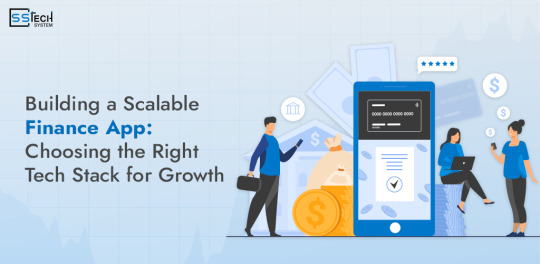
Designing a scalable Finance App is essential in the constantly evolving financial technology world to ensure sustainability and meet the needs of many users in the future. The need for efficient and flexible Finance App Development strategies increases due to the need for reliable and secure financial services.
Thus, this detailed article focuses on selecting the right tech stack to create a sustainable finance app and will discuss the key aspects and technologies related to mobile finance app development. According to the report, 97% of millennials use mobile banking apps, and 89% of customers use them for financial management.
Understanding the basics of finance app development
Finance app development can be anything from a simple mobile finance app to a complicated trading application. Those programs require paramount security, performance, expansion, and friendliness of the interfaces. It is essential because developers have to guarantee solid encryption and safe authentication methods, mainly due to the high level of security financial data implies and compliance with regulations.
The elements that define a specialized finance app
User authentication and authorization: Users only access the information that they are allowed to and this can only be done by logging in to the system.
Data encryption: This includes the protection while the information is in transit, often described as encryption in flight and also when data is stored, or in other words, encryption at rest.
API Integration in finance apps: Integration with numerous financial services and outside vendors, API in financial apps.
Real-time data processing: A stable data feed is a must-have for mobile trading applications for stocks and artificial trading applications.
Choosing the right tech stack for finance app development
A basic first stage in the creation of a mobile financial app is choosing the suitable tech stack. The scalability, speed, and security of the app would be much affected by the technology choices. We’ll go over many tech stacks here and their fit for building finance apps.
1. Backend Technologies
Node.js for finance app
Node.js is fit for real-time applications like banking apps as its event-driven design is well-known. Crucially for the development of mobile banking apps and trading apps, it can effectively manage many concurrent connections. Node.js also makes it possible to employ JavaScript on the client and server sides, therefore streamlining the building process.
Python stack
Among developers, Python is a beloved tool because of its simplicity and readability. Excellent options for Finance App Development, the Django and Flask frameworks provide scalability and strong security measures. Additionally, perfect for AI trading apps and investment app development is Python’s vast data analysis and machine learning packages.
Java stack
Java offers a strong and safe space for applications in building finances. The whole ecosystem of the Spring Framework guarantees scalability and dependability by supporting enterprise-level projects. Applications with extensive business logic and great performance will find Java especially appropriate.
2. Frontend Technologies
React native finance apps
React Native lets developers create Cross-platform financial app development once and use them on both iOS and Android devices, therefore saving coding effort. While preserving great performance and a natural appearance and feel, this drastically lowers development time and expenses. React Native’s flexibility and efficiency make it ideal for developing mobile financial apps.
MEAN stack
The development of cross-platform financial apps often favours the MEAN stack. Node.js and Express.js address the backend; angular or react provide a strong frontend framework. A great choice for scalable financial applications, MongoDB, a NoSQL database, gives data management flexibility.
3. Database Technologies
SQL database
Reliable options for Finance App Development include conventional SQL databases such MySQL and Postgresql. These guarantee data integrity and dependability by offering ACID (Atomicity, Consistency, Isolation, Durability) qualities. Applications involving structured data and sophisticated transactions fit SQL databases.
NoSQL databases
Designed for horizontal scalability, NoSQL databases such as MongoDB and Cassandra provide adaptability in managing unstructured data. For uses requiring fast throughput and big amounts of data, they are perfect. Many times, NoSQL databases are used with SQL databases to provide a balanced approach to building financial applications.
4. Cloud-based Solutions
Among many benefits are scalability, dependability, and cost-effectiveness, as seen in cloud-based finance solutions. Developers may quickly expand their infrastructure depending on demand by using cloud services such as AWS, Azure, or Google Cloud. Strong security measures offered by cloud platforms guarantee the safety of private financial information as well.
5. Security Considerations
The development of a financial app depends critically on financial app security. Protecting user data depends on putting policies such as end-to-end encryption, multi-factor authentication, and frequent security audits into action. Staying current with the newest security standards and using safe coding techniques can help greatly lower risks.
6. Enhancement of Performance
Retention and user happiness in finance apps depend on performance. Load balancing, caching, and database query optimization, among other strategies, improve app speed. Applications requiring real-time data processing, like Mobile stock trading apps and Financial Market Trading apps, also depend on applying effective algorithms and lowering latency.
7. Development Tools and Frameworks
Selecting appropriate finance tools for app development helps improve output and simplifies the development process. The following are some recommended instruments and models:
API Integration in finance apps: Postman and Swagger are two tools that help finance apps integrate and test APIs, thus guaranteeing flawless communication across many services.
Mobile App Development Frameworks: Cross-platform development features of mobile app development frameworks such as Flutter and Xamarin help to enable the production of high-performance financial applications.
DevOps tools: Jenkins, Docker, and Kubernetes are among the DevOps tools that offer constant integration and deployment, thus guaranteeing effective development processes.
Hiring Finance App Developers
Regarding hiring finance app developers, it’s important to search for applicants with thorough knowledge of financial services and experience in the selected tech stack. Developers should have knowledge of speed optimization and scalability in addition to being strong in safe coding techniques. Furthermore, it is essential to have knowledge of industry rules and standards to guarantee compliance.
Development tools for future finance
With developments in artificial intelligence, blockchain, and cloud technologies, finance app development tools seem to have a bright future. These developments will keep changing the scene of building finance apps, providing developers with strong tools to produce more advanced and safe financial applications.
How do you select the ideal Tech Stack for a scalable finance application?
As you choose the tech stack for a scalable Finance App, take these things into account:
Project requirements: Evaluate requirements, including security, performance, and user experience.
Developer expertise: The technology your development team is competent in should be chosen.
Scalability: Choose technology supporting horizontal and vertical scalability.
Security: Make sure the tech stack you choose provides strong security measures.
Community and support: Technology with great community support and thorough documentation should be considered.
Conclusion
Creating a scalable finance app requires a thorough evaluation of security, performance, and user experience, among other elements. The success and long-term expansion of the app depend critically on the correct tech stack being chosen.
Whether using Node.js, Python, or Java, every technology has special benefits for developing finance apps. Using safe coding techniques, strong development tools, and cloud-based solutions can help to improve the scalability and dependability of the app even more.
#Finance App#Finance App Development#FinTech app development#SSTech System#mobile app development#b2b lead generation#business#finance apps#Finance App Developers#Node.js#Python#mobile app development frameworks#cloud-based finance solutions#React native finance apps#mobile finance app development
1 note
·
View note
Text
How To Develop A Fintech App In 2024?
FinTech, short for financial technology, represents innovative solutions and products that enhance and streamline financial services. These innovations span online payments, money management, financial planning applications, and insurance services. By leveraging modern technologies, FinTech aims to compete with and often complement traditional financial institutions, improving economic data processing and bolstering customer security through advanced fraud protection mechanisms.
Booming FinTech Market: Key Highlights And Projections
Investment Growth In FinTech
In 2021, FinTech investments surged to $91.5 billion.
This represents nearly double the investment amount compared to 2020.
The significant increase highlights the rapid expansion and investor interest in the global FinTech market.
Projected Growth In Financial Assets Managed By FinTech Companies
By 2028, financial assets managed by FinTech firms are expected to reach $400 billion.
This projection indicates a��15% increase from current levels, showcasing the potential for substantial growth in the sector.
Usage Of Online Banking
About 62.5% of Americans used online banking services in 2022.
This figure is expected to rise as more consumers adopt digital financial services.
Key FinTech Trends In 2024
1. Banking Mobility
The transition from traditional in-person banking to mobile and digital platforms has been significantly accelerated, especially during the COVID-19 pandemic. The necessity for remote banking options has driven a surge in the adoption of smartphone banking apps. Digital banking services have become indispensable, enabling customers to manage their finances without needing to visit physical bank branches.
According to a report by Statista, the number of digital banking users in the United States alone is expected to reach 217 million by 2025. Many conventional banks are increasingly integrating FinTech solutions to bolster their online service offerings, enhancing user experience and accessibility.
2. Use Of Artificial Intelligence (AI)
AI in Fintech Market size is predicted at USD 44.08 billion in 2024 and will rise at 2.91% to USD 50.87 billion by 2029. AI is at the forefront of the FinTech revolution, providing substantial advancements in financial data analytics, customer service, and personalized financial products. AI-driven applications enable automated data analysis, the creation of personalized dashboards, and the deployment of AI-powered chatbots for customer support. These innovations allow FinTech companies to offer more tailored and efficient services to their users.
3. Development Of Crypto And Blockchain
The exploration and integration of cryptocurrency and blockchain technologies remain pivotal in the FinTech sector. Blockchain, in particular, is heralded for its potential to revolutionize the industry by enhancing security, transparency, and efficiency in financial transactions.
The global blockchain market size was valued at $7.4 billion in 2022 and is expected to reach $94 billion by 2027, according to MarketsandMarkets. These technologies are being utilized for improved regulatory compliance, transaction management, and the development of decentralized financial systems.
4. Democratization Of Financial Services
FinTech is playing a crucial role in making financial services more transparent and accessible to a broader audience. This trend is opening up new opportunities for businesses, retail investors, and everyday users. The rise of various digital marketplaces, money management tools, and innovative financing models such as digital assets is a testament to this democratization.
5. Products For The Self-Employed
The increasing prevalence of remote work has led to a heightened demand for FinTech solutions tailored specifically for self-employed individuals and freelancers. These applications offer a range of features, including tax monitoring, invoicing, financial accounting, risk management, and tools to ensure financial stability.
According to Intuit, self-employed individuals are expected to make up 43% of the U.S. workforce by 2028, underscoring the growing need for specialized financial products for this demographic. FinTech companies are responding by developing apps and platforms that address the unique financial needs of the self-employed, facilitating smoother and more efficient financial management.
Monetization of FinTech Apps
1. Subscription Model
FinTech apps can utilize a subscription model, which offers users a free trial period followed by a recurring fee for continued access. This model generates revenue based on the number of active subscribers, with options for monthly or annual payments. It ensures a steady income stream as long as users find the service valuable enough to continue their subscription.
2. Financial Transaction Fees
Charging fees for financial transactions, such as virtual card usage, bank transfers, currency conversions, and payments for third-party services, can be highly lucrative. This model capitalizes on the volume of transactions processed through the app, making it a significant revenue generator.
3. Advertising
In-app advertising can provide a consistent revenue stream. Although it may receive criticism, strategically placed banners or video ads can generate substantial income without significantly disrupting the user experience.
Types Of FinTech Apps
1. Digital Banking Apps
Digital banking apps enable users to manage their bank accounts and financial services without visiting a physical branch. These apps offer comprehensive services such as account management, fund transfers, mobile payments, and loan applications, ensuring transparency and 24/7 access.
2. Payment Processing Apps
Payment processing apps act as intermediaries, facilitating transactions between payment service providers and customers. These apps enhance e-commerce by enabling debit and credit card transactions and other online payment methods, supporting small businesses in particular.
To Read More Visit - https://appicsoftwares.com/blog/develop-a-fintech-app/
#app development#finance app development#finance app#real estate app development#mobile app development#fintech apps
2 notes
·
View notes
Photo

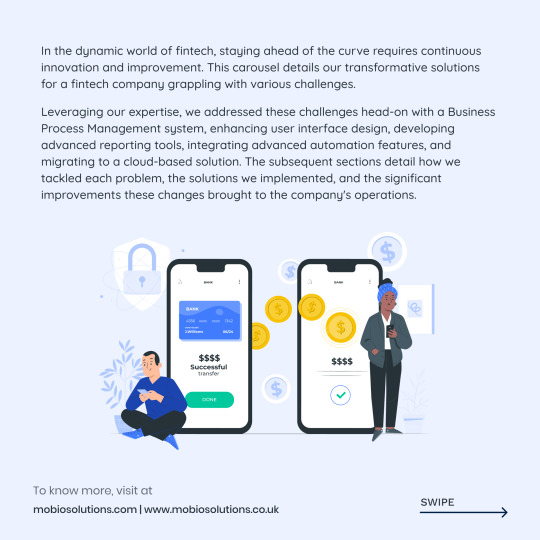
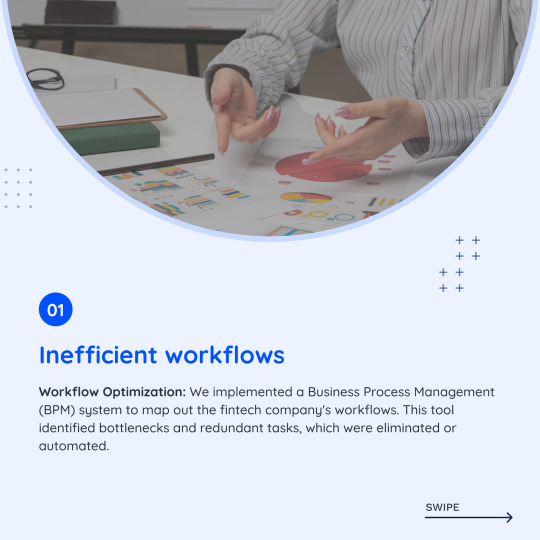
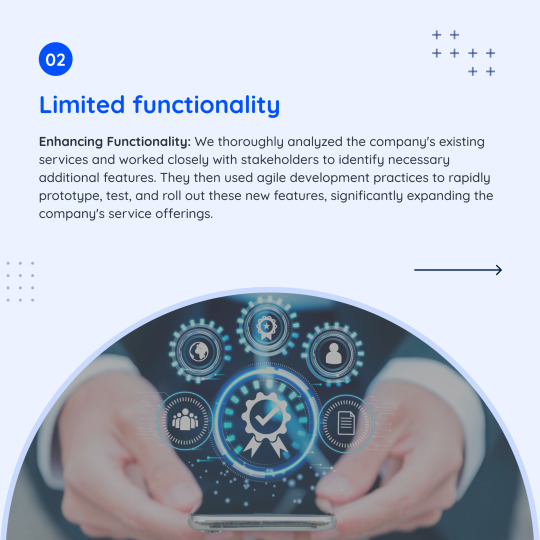
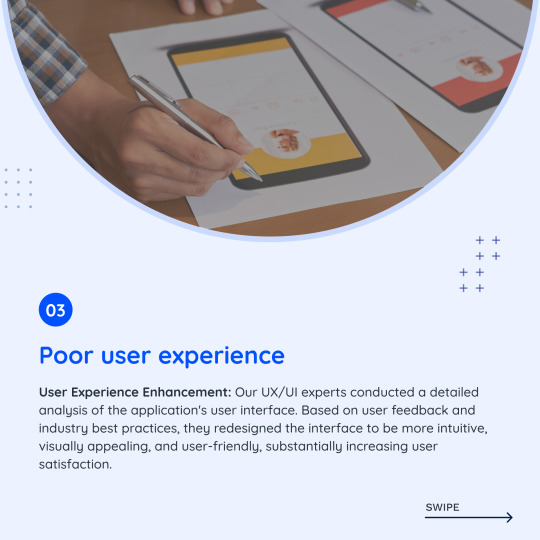
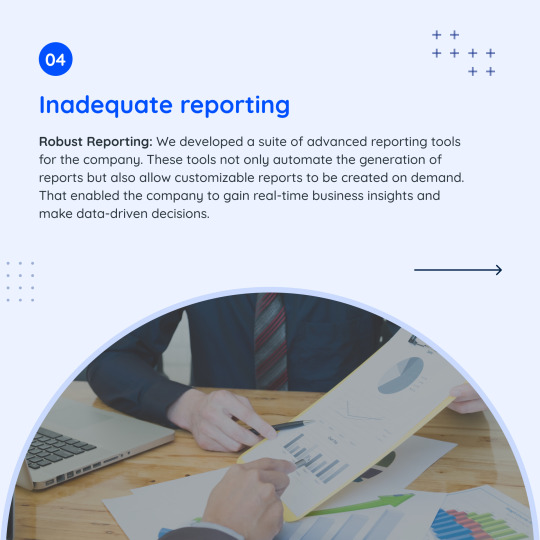
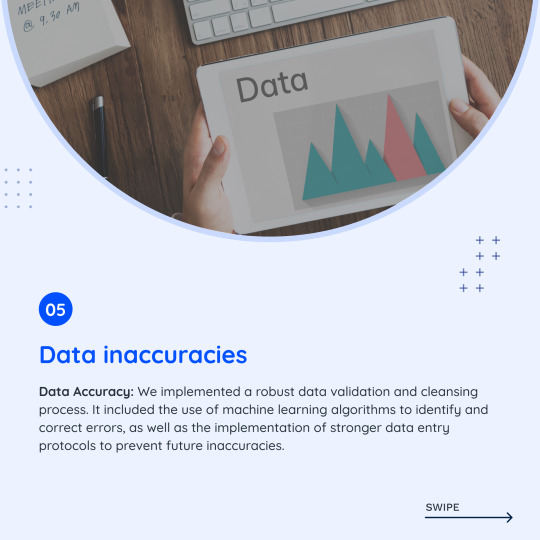
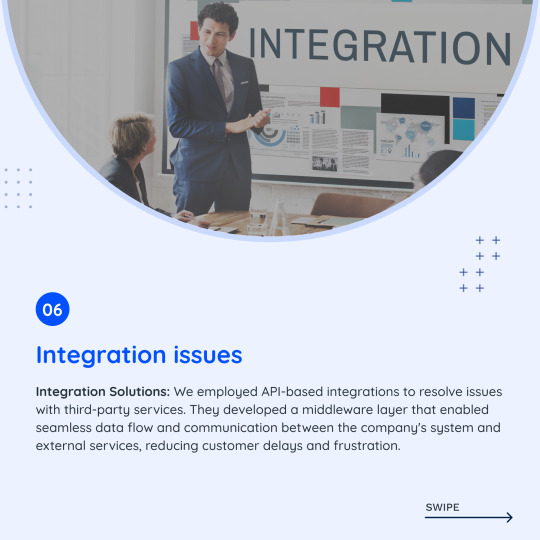
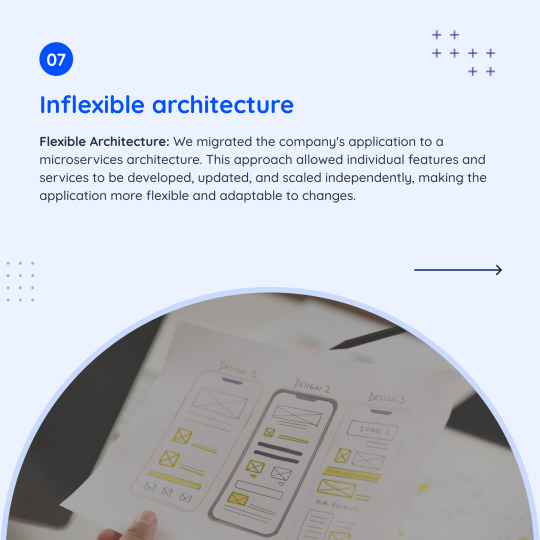

MobioSolutions team of industry experts uses advanced technology and deep domain knowledge to provide smooth, secure, and efficient Fintech solutions. Whether it's integrating robust security protocols, ensuring seamless transaction processes, or driving innovative, user-friendly features, we're on the frontline of transforming financial technology. Join us on this exciting journey and learn how we're paving the way for a better Fintech future.
#finance#fintech#FinServ#financialservices#mobile#web#app#development#fintechindustry#security#technology#future#mobiosolutions#uk
10 notes
·
View notes
Photo

Revolutionize your financial game in 2023 with our finance app development services! 💰💻💡
From cost-effective solutions to cutting-edge features and technical best practices, we've got you covered.
Stay ahead of the competition and streamline your financial processes with our expert team.
Contact us today to learn more!
https://www.algoworks.com/blog/finance-app-development-2023/
#finance app development#cost efficiency#cutting edge features#technical best pratices#stream line your finance#2023 goals#finance app solutions#innovation#financial game changer
2 notes
·
View notes
Text
Government & Special Schemes: A Complete Guide to Personal Loans

When it comes to financing personal expenses, a personal loan can be a valuable tool. However, did you know that there are several government-backed schemes and special loan programs designed to make personal loans more accessible and affordable for various groups of people? Whether you are a government employee, a first-time homebuyer, or an individual with specific financial needs, understanding these schemes can help you secure better terms and lower interest rates.
In this article, we will explore government and special schemes that offer financial assistance, discuss how these programs work, and provide a list of lenders who offer personal loans under these schemes.
1. Government Schemes for Personal Loans in India
1.1 Pradhan Mantri Mudra Yojana (PMMY)
One of the most prominent government schemes for financing small businesses and individuals is the Pradhan Mantri Mudra Yojana (PMMY). This scheme offers financial support to non-corporate, non-farm small/micro enterprises and is especially helpful for those looking to start their own business or expand an existing one.
Types of Loans under PMMY: ✔ Shishu Loan – Up to ₹50,000 for startups and small businesses in the early stages. ✔ Kishore Loan – ₹50,001 to ₹5 lakh for businesses that have a more established track record. ✔ Tarun Loan – ₹5 lakh to ₹10 lakh for larger small enterprises looking to grow.
💡 Tip: Since PMMY loans are aimed at small businesses and entrepreneurs, they can also be used for personal purposes like buying equipment or funding personal projects related to business needs.
🔗 Best lenders for PMMY loans: 👉 IDFC FIRST Bank Personal Loan 👉 Bajaj Finserv Personal Loan
1.2 Atal Pension Yojana (APY)
The Atal Pension Yojana (APY) is a government-backed pension scheme designed for workers in the unorganized sector. This scheme provides pension benefits to people between the ages of 18 to 40 years, ensuring a steady income after retirement. Though primarily a pension scheme, APY participants may also benefit from certain loan schemes tailored to meet their financial needs.
1.3 National Handicapped Finance and Development Corporation (NHFDC) Loans
The NHFDC offers personal loans at subsidized rates to people with disabilities, helping them fund various personal needs, including: ✔ Education ✔ Employment creation ✔ Livelihood enhancement
Eligibility Criteria: ✔ Individuals with disabilities must be between 18 to 55 years. ✔ A minimum of 40% disability must be verified by a medical board.
💡 Tip: NHFDC loans are especially helpful for disabled individuals to set up small businesses or manage personal expenses.
2. Special Loan Schemes for Government Employees
2.1 Government Employee Personal Loan Schemes
Many banks and NBFCs offer special personal loan schemes tailored specifically for government employees. These loans typically come with lower interest rates, flexible terms, and quick processing. Since government employees are considered low-risk borrowers, these schemes are designed to offer more favorable conditions.
Key Features: ✔ Lower Interest Rates – Reduced interest rates for government employees. ✔ Longer Tenure – Extended repayment periods (up to 7 years). ✔ Higher Loan Amount – Government employees can avail of larger loans than those with private-sector jobs.
💡 Best for: Government employees looking for unsecured loans to cover personal expenses or emergencies.
🔗 Best lenders for government employee loans: 👉 Tata Capital Personal Loan 👉 Axis Bank Personal Loan
2.2 Nationalized Banks Personal Loans for Government Employees
Nationalized banks such as SBI, PNB, and Bank of India also offer exclusive personal loan schemes for government employees. These loans are typically available at lower interest rates, making them an ideal choice for government staff members.
3. Schemes for Women Entrepreneurs
3.1 Stand-Up India Scheme
The Stand-Up India Scheme was launched to promote entrepreneurship among women, Scheduled Castes (SCs), and Scheduled Tribes (STs). Under this scheme, banks offer loans ranging from ₹10 lakh to ₹1 crore for greenfield projects in the manufacturing, services, or trading sectors.
Key Features: ✔ Collateral-free loans for women entrepreneurs. ✔ Repayment tenure of up to 7 years. ✔ Lower interest rates compared to standard loans.
💡 Tip: This scheme is ideal for women entrepreneurs who want to establish or grow a small business and need financial assistance.
🔗 Best lenders for Stand-Up India loans: 👉 Axis Finance Personal Loan 👉 InCred Personal Loan
4. Schemes for First-Time Homebuyers
4.1 Pradhan Mantri Awas Yojana (PMAY)
The Pradhan Mantri Awas Yojana (PMAY) aims to provide affordable housing to the urban poor and those from rural areas. This scheme offers subsidized loans for first-time homebuyers and those looking to upgrade their homes.
Key Benefits of PMAY: ✔ Subsidized interest rates (up to 6.5% p.a.) for home loans. ✔ Affordable repayment terms with long loan tenures. ✔ Available to both urban and rural residents.
💡 Tip: Check if you’re eligible for a PMAY subsidy before applying for a home loan to save significantly on interest payments.
🔗 Best lenders for PMAY loans: 👉 IDFC FIRST Bank Personal Loan 👉 Bajaj Finserv Personal Loan
5. How to Apply for Government and Special Scheme Loans
Step 1: Check Eligibility Criteria
Each government-backed or special loan scheme has specific eligibility criteria that must be met. Be sure to review the eligibility conditions for each scheme before applying.
Step 2: Gather Required Documents
Most loans will require basic documentation such as: ✔ Identity Proof ✔ Address Proof ✔ Income Proof (ITR, Salary slips, or Bank Statements) ✔ Property Papers (for housing schemes)
Step 3: Apply Through Approved Lenders
Many of these loans are disbursed by banks and financial institutions that are approved by the government. Ensure that the lender you choose is part of the approved list for each scheme.
Leveraging Government & Special Schemes for Personal Loans
Government and special schemes play a vital role in providing financial support to individuals from various backgrounds, whether you are a first-time homebuyer, government employee, or women entrepreneur. These schemes typically offer lower interest rates, longer repayment periods, and less stringent eligibility conditions, making them highly beneficial for personal and business needs.
Before applying, make sure you: ✔ Check the eligibility for the scheme that fits your needs. ✔ Compare interest rates and loan terms to get the best deal. ✔ Prepare your documents in advance to speed up the approval process.
For the best personal loan options, apply here: 👉 Compare & Apply for a Personal Loan
By leveraging these government and special schemes, you can achieve your financial goals more affordably and efficiently.
#Government loan schemes#Special loan schemes in India#Pradhan Mantri Mudra Yojana loan#Personal loan schemes for government employees#Stand-Up India scheme loans#Affordable housing loan schemes#Government-backed personal loans#PMAY loan eligibility#Personal loan for women entrepreneurs#Personal loan schemes for first-time homebuyers#Mudra Yojana loan for business#National Handicapped Finance and Development Corporation loan#Personal loans for self-employed individuals#Loans for disabled individuals in India#Personal loan eligibility criteria for government employees#Affordable personal loans for startups#How to apply for PMAY home loan#Pradhan Mantri Awas Yojana subsidy#Subsidized personal loans for women#Low-interest government personal loan schemes#finance#bank#nbfc personal loan#personal loans#loan services#personal loan#fincrif#loan apps#personal loan online#personal laon
0 notes
Text
Boost Your Business Growth with Proven Strategies Call +91 8890045686
0 notes
Text
Fintech built smarter. 🤓💻
SDH integrates cutting-edge technologies with your vision. Digital banking, blockchain, personal finance apps—done right. Explore:
#financial software development#custom app solutions#fintech#SDH#digital banking#blockchain#personal finance apps
0 notes
Text
Building in Public at NVSTly: What It Means and Why It Matters
Discover how NVSTly embraces "building in public" by rolling out updates quickly, collaborating with users for real-world feedback, and fostering transparency in our development process.

At NVSTly, we embrace the concept of "building in public." This approach shapes how we develop, test, and roll out features, with the goal of making NVSTly the best social trading platform for our users. But what exactly does building in public mean for NVSTly? Let’s break it down.
Updates as They’re Finished
Instead of waiting to bundle new features and fixes into big, infrequent releases, we push updates as they’re completed. This ensures users benefit from improvements as soon as possible. However, our agile development style means you might notice subtle changes before they’re officially included in a published changelog. These incremental updates allow us to iterate and enhance the platform quickly.
Internal Testing, Real-World Feedback
Before any update reaches the production environment, our team conducts internal testing to ensure the new feature or fix works as intended. For example, a recent update to allow stats and daily/weekly recap commands to function with usernames containing spaces was thoroughly tested internally. Unfortunately, this change inadvertently broke compatibility with Discord IDs, highlighting the challenges of anticipating every edge case.
This is where building in public comes into play: while we strive for thorough testing, some issues only emerge when updates meet real-world usage. That’s why we rely on our vibrant user base to help us identify bugs, unintended behaviors, and areas for improvement.
The Role of Our User Community
Our users play a critical role in the development process. By using NVSTly in their daily trading workflows, they encounter scenarios that internal testing might miss. When users report bugs, glitches, or other issues, it provides us with invaluable insights into how the platform performs under various conditions.
If you ever experience something on NVSTly that doesn’t seem to work as expected, we encourage you to report it to us. Unlike platforms that may identify and resolve issues passively over time, NVSTly relies directly on user feedback to detect and prioritize fixes. Every report helps us improve.
Changelogs: A Snapshot of Progress
Given our frequent updates, we publish changelogs only after accumulating several changes or introducing major features. This means that when you see a changelog, many of the updates listed might have been implemented days or even weeks earlier. While this approach helps us focus on building and refining the platform, it’s another example of how building in public keeps the development process transparent.
Why Building in Public Matters
By building in public, we:
Accelerate innovation: Continuous updates ensure the platform evolves rapidly.
Foster transparency: Users gain insight into what’s changing and how issues are addressed.
Strengthen collaboration: Feedback from users directly informs our priorities and solutions.
This approach isn’t without its challenges, but we believe the benefits far outweigh the risks. Building in public allows us to create a platform that truly meets the needs of our community — a community we’re proud to involve in the journey.
How You Can Help
If you notice a bug, glitch, or unintended behavior, please let us know right away. Your feedback is essential to making NVSTly better every day. Together, we’re not just building a platform; we’re building a community-driven experience that reflects the collective expertise and passion of its users.
Thank you for being part of the NVSTly journey. Let’s keep building — together.
NVSTly is available for free on web, mobile devices (iOS & Google Play), and is fully integrated with Discord via a unique bot- the only of it’s kind and available to any server or trading community on Discord. Or feel free to join a community of over 45,000 investors & traders on our Discod server.
#crypto#cryptocurrency#finance#fintech#forex#futures#investing#investors#stock market#stocks#startup#startups#development#developer#web development#web developers#app development#app developers#mobile app development#social media#social networks
0 notes
Text
Top Accounting and Bookkeeping Services in Nungambakkam, Chennai
Hey there, Nungambakkam locals! If you're on the lookout for stellar accounting and bookkeeping services in our vibrant part of Chennai, you're in the right place. Managing your finances can be a hassle, but with the right support, it becomes a breeze. Whether you're a small business owner or someone needing a hand with personal finance, we've got you covered.
In the bustling area of Nungambakkam, you'll find a range of professional services tailored to your accounting and finance needs. From comprehensive bookkeeping to detailed financial reports, the local experts are here to ensure your numbers add up perfectly.
One standout option in the area is the use of cutting-edge accountancy practice management software. This technology streamlines your accounting tasks, making them more efficient and accurate. With tools designed specifically for the local market, you can easily track your finances, manage invoices, and get valuable insights into your financial health.
So, if you’re searching for top-notch accounting and bookkeeping services in Nungambakkam, look no further. The professionals in this area are dedicated to helping you manage your finances with ease, so you can focus on what really matters to you. Check out the full range of services available and find the perfect fit for your needs. For more information, visit Iykons and get started today!
#IT Service Providers for Fintech Companies#IT Service Providers for Fintech Development#IT Service Providers for Fintech firms#IT Service Providers for Fintech Technology#IT Service Providers for Fintech Enterprises#IT solution provider company#Ecommerce Solution for Startup#Mobile App Development#Payroll Company for Very Small Business#Personal Loan Finance Companies#Complete Ecommerce Solution#Human Resource Management Services#Payroll HRMS Software
0 notes
Text
Top 5 Plaid Features That Improve User Experience in Finance Apps
Plaid offers several standout features that significantly enhance user experience in finance apps by providing secure and seamless access to financial data. Among its top features are its robust bank account linking capabilities, which allow users to connect their accounts quickly and effortlessly. Its transaction categorization tools deliver valuable insights by organizing spending data into meaningful categories. Plaid also ensures a high level of security with advanced encryption and tokenization methods, safeguarding user information. Its real-time balance checks enable better financial management, while its streamlined authentication process ensures a smooth and hassle-free experience. These features collectively make Plaid an essential tool for modern finance apps.
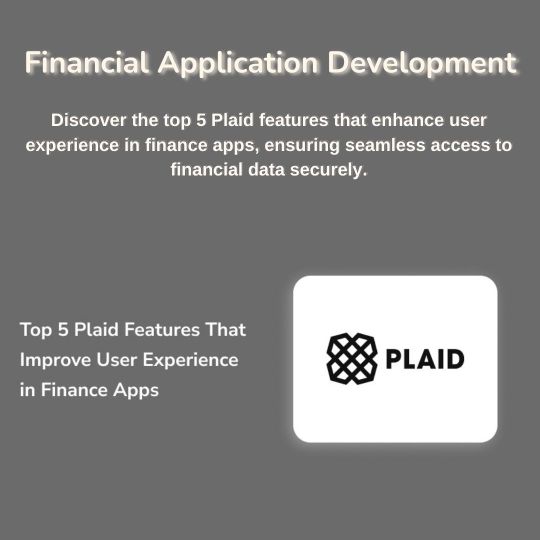
#Financial IT Services#financial technology services#financial services it solutions#IT solutions for financial services#financial software development#financial software engineering#financial software development company#financial software development services#financial software development agency#custom financial software development#financial development company#finance software development companies#finance software development company#finance software development services#software development finance#finance software development#financial software development companies#financial mobile app development company#financial mobile app development#financial application development#fintech developments#fintech development company
1 note
·
View note
Text
AI agents and ecosystems with AgentFun.AI's launch on Cronos - AI News
New Post has been published on https://thedigitalinsider.com/ai-agents-and-ecosystems-with-agentfun-ais-launch-on-cronos-ai-news/
AI agents and ecosystems with AgentFun.AI's launch on Cronos - AI News
.pp-multiple-authors-boxes-wrapper display:none; img width:100%;
AgentFun.AI, a platform to create and trade AI agents, went live on November 27 on Cronos zkEVM. It became the first decentralised app dedicated to AI agents in the Cronos ecosystem. Users can create, build, and trade tokenised AI agents on AgentFun.AI. They set growth milestones for the agents, which have individual personalities. Agents accumulate fans and become trade-able assets with each milestone reached. Each agent can interact with users on the blockchain and on social media.
Exploring the appeal of trading tokenised AI agents
Users can own a fraction of high-value AI models, lowering the barrier to AI ecosystem entry. These tokens often operate on decentralised platforms, increasing transparency, security, and cross-platform integration. Users across the globe can participate in funding and developing innovative AI models, accelerating AI adoption.
Creating an agent through AgentFun.AI starts with buying a small amount of AGENTFUN tokens on H2 Finance, a leading decentralised exchange (DEX) on Cronos zkEVM. Each agent generated requires a nominal fee of 1 $AGENTFUN. The entire process of creating and training AI agents has been gamified, further encouraging users to use the platform.
Agent capabilities increase in direct proportion to demand
As the AI agents grow, they obtain new capabilities, with rising demand from other users on Cronos zkEVM unlocking new features. As an agent reaches the fixed market cap of $127,100, it becomes capable of engaging in Telegram chats. It cultivates a liquidity pool on Cronos’ DEX, alleviating trading and discoverability in the ecosystem.
Additional features are unlocked as agents attain milestone-based targets. An agent that reaches the market cap of $1.27 million starts interacting on X. Its growth is essentially unlimited, giving users a strong incentive to network in the ecosystem that AgentFun.AI has helped build.
Further encouragement is provided by the fact that users can create AI agents with unique personalities and narratives. Each agent starts as a tailored language model for conversational interactions before it gains new capabilities, features, and skills. In other words, the agents are designed for specific tasks or domains, using a customised language model at their core. Unlike general-purpose AI, they are fine-tuned on highly specialised datasets to excel in a particular area. Over time, they can theoretically evolve by incorporating autonomous decision-making and API integration and communicating with other systems, like interacting with users in dynamic environments. They could perform tasks using logic-based or reinforcement learning modules or fetch and process real-time data.
When a user creates an agent, they provide social links to facilitate socialisation and discovery. A new agent token is launched in a pool with a supply of one billion. The agent token will eventually be listed on H2 Finance as more users buy it, using the $AGENTFUN earned from sold tokens and the remaining token supply.
Supporting Cronos as a leading AI-agent-powered ecosystem
A final notable aspect of AgentFun.AI’s launch is its support of Cronos’ strategy to become one of the first niche, AI agent-powered ecosystems. As part of this, it will stimulate experimentation and adoption of the first AI agents on Cronos zkEVM. The may encourage other developers to introduce AI agent dApps, leading to a flood of innovation on Cronos.The launch of AgentFun.AI on Cronos aligns with the latter’s mission to build a financial ecosystem with openness, fairness, and community empowerment at its core. Cronos envisions a future enabled primarily by AI agents where decentralised finance is universally accessible, which aligns with its conviction that the agents can provide unlimited growth opportunities.
(Image source: Depositphotos)
#2024#adoption#agent#agents#ai#AI adoption#ai agent#AI AGENTS#AI models#ai news#API#app#Artificial Intelligence#assets#author#autonomous#barrier#billion#Blockchain#Community#data#datasets#december#developers#domains#Ecosystems#excel#Features#finance#financial
0 notes
Text
Top Apps to Boost Your Personal Development and Productivity

View On WordPress
#Apps for personal development and productivity#Effective time management#passive income ideas#Personal Development and Finance
0 notes
Text
The Future of Resource Optimization Services

As artificial intelligence and machine learning continue to evolve, the future of resource optimization looks increasingly automated and data-driven. AI can help predict resource demands, suggest optimal resource allocation, and even identify potential bottlenecks before they occur. With automation, companies can expect to see even greater efficiencies and faster responses to market changes.
#business#technology#accounting#ecommerce#commercial#economy#finance#entrepreneur#founder#branding#resource#app development#techservices
0 notes
Text
Top Game-Changing Technologies Powering the Future of Fintech
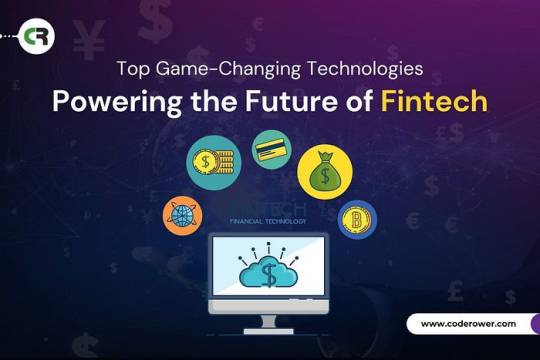
The financial technology (fintech) sector is rapidly transforming, driven by innovative technologies that streamline processes, enhance customer experiences, and create new opportunities. These advancements, from artificial intelligence to blockchain, are revolutionizing financial services, empowering businesses to offer secure, efficient, and personalized solutions. CodeRower, with its forward-thinking approach and deep expertise, is at the forefront of this transformation, enabling clients to leverage the latest technologies effectively. Let’s explore the top technologies propelling the fintech revolution and shaping the future of finance.
1. Artificial Intelligence (AI) and Machine Learning (ML)
AI and ML have become fundamental in fintech, especially in decision-making and predictive analysis. These technologies help fintech companies process massive datasets, enabling them to provide customized services, detect fraud, and make data-driven decisions.
Customer Personalization: AI and ML help fintech firms tailor recommendations for products, loans, and investment portfolios by analyzing customer behavior and preferences.
Fraud Detection and Prevention: Machine learning algorithms monitor transaction patterns and detect anomalies in real-time, helping prevent fraud and unauthorized access.
Credit Scoring: Traditional credit scores have limitations, especially for people with minimal credit history. AI-driven credit scoring models consider alternative data, providing more accurate assessments for creditworthiness.
Example: Companies like PayPal and Square leverage AI to enhance user experience and improve security, maintaining a balance between frictionless access and robust protection.
CodeRower integrates AI-driven solutions to provide personalized customer experiences, from advanced credit scoring models to real-time fraud detection. By leveraging these tools, CodeRower helps financial organizations predict trends, identify risks, and improve customer engagement.
2. Blockchain Technology
Blockchain, the technology underlying cryptocurrencies, offers a decentralized approach to transactions, bringing security and transparency. It reduces the need for intermediaries and minimizes transaction costs, making it ideal for financial applications.
Cryptocurrencies and Digital Payments: Blockchain allows for fast, secure, and borderless payments. Cryptocurrencies like Bitcoin and Ethereum have popularized the idea of digital money.
Smart Contracts: These self-executing contracts automate transactions when predefined conditions are met, reducing delays and minimizing risks associated with manual processing.
Tokenization: By converting assets into digital tokens, blockchain enables fractional ownership and faster trading, especially useful in real estate and stock markets.
Example: Ripple and Stellar are blockchain-based payment platforms that provide cross-border payment solutions, significantly lowering transaction times and fees.
CodeRower designs secure and scalable blockchain-based solutions, including digital payment systems and smart contracts, that streamline operations and enhance transparency for clients. By focusing on decentralized finance and asset tokenization, CodeRower helps businesses reduce operational costs and drive growth through trustless, secure platforms.
3. Decentralized Finance (DeFi)
Decentralized Finance, or DeFi, leverages blockchain to deliver open, permissionless financial services without traditional intermediaries like banks. By using DeFi applications, users can lend, borrow, and trade assets directly on decentralized platforms.
Peer-to-Peer Lending and Borrowing: DeFi platforms like Aave and Compound enable users to lend or borrow assets, earning interest or gaining liquidity without a middleman.
Decentralized Exchanges (DEXs): Unlike traditional exchanges, DEXs allow users to trade cryptocurrencies directly with one another, improving privacy and control over funds.
Stablecoins: DeFi has also driven the growth of stablecoins (digital assets pegged to stable assets like the U.S. dollar), which offer price stability in the volatile cryptocurrency space.
Example: Uniswap, a popular DEX, allows users to trade directly from their digital wallets, reducing reliance on centralized exchanges and increasing transaction speed.
CodeRower assists clients in building robust DeFi applications that enable peer-to-peer lending, decentralized exchanges, and digital wallet services. These solutions empower businesses to offer financial products that increase accessibility and align with the growing demand for decentralized financial options.
4. Open Banking
Open Banking mandates financial institutions to share customer data (with consent) with third-party providers, fostering competition and innovation. It aims to give customers control over their data, enabling them to access better financial products.
Enhanced Services and Product Comparison: Open banking allows users to compare financial products and services across multiple providers, leading to more informed decisions.
Personalized Financial Advice: By aggregating financial data, third-party providers can offer more tailored insights and advice.
Streamlined Payments: Open banking allows for direct bank-to-bank transfers, reducing transaction costs and improving processing times.
Example: European open banking regulations, like PSD2, have driven the growth of third-party apps such as Mint and Plaid, which provide financial tracking and planning solutions.
CodeRower develops secure APIs that facilitate seamless data sharing between banks and third-party providers, allowing clients to meet regulatory standards and build more responsive, personalized financial services. By enhancing customer experience, CodeRower’s open banking solutions increase client retention and expand market reach.
5. Robotic Process Automation (RPA)
Robotic Process Automation (RPA) automates repetitive tasks, freeing employees to focus on more strategic activities. In fintech, RPA reduces human error and speeds up processes.
Data Entry and Compliance: RPA bots streamline data entry and ensure regulatory compliance, minimizing the risk of manual mistakes.
Customer Support: Automated chatbots use RPA to answer common customer queries, reducing wait times and improving user experience.
Loan Processing: RPA accelerates loan approvals by automating document verification and other administrative tasks.
Example: Many banks employ RPA to automate Know Your Customer (KYC) and Anti-Money Laundering (AML) checks, saving time and resources while ensuring compliance.
CodeRower applies RPA technology to streamline tasks like data entry, compliance, and customer support. With these automated processes, financial institutions can achieve faster turnaround times, ensure data accuracy, and enhance compliance, all while freeing up human resources for higher-value tasks.
6. Biometric Authentication
Security is paramount in fintech, and biometric authentication provides a robust, user-friendly solution. Technologies like fingerprint, facial, and voice recognition reduce the risk of unauthorized access.
Enhanced Security: Biometrics offer a unique identifier, making it challenging for unauthorized users to access accounts.
Improved User Experience: Password-free logins enhance convenience and reduce the chances of password theft.
Adaptation for Mobile: Mobile devices support biometric authentication, making it easier for users to secure their devices and access banking apps safely.
Example: Banks and fintech apps often use fingerprint and facial recognition for mobile app logins, ensuring that only the account holder has access.
CodeRower integrates biometric authentication systems into mobile banking apps and online platforms, enhancing security and improving the user experience. With a focus on advanced authentication mechanisms, CodeRower helps clients ensure that only verified users have access to sensitive financial data.
7. 5G Connectivity
With the advent of 5G, financial services can now operate faster and more reliably, especially on mobile devices. The improved connectivity supports real-time transactions, data streaming, and advanced app features.
Faster Transactions: 5G enables instant money transfers and low-latency trading, reducing delays.
Enhanced Mobile Banking: Banks can now offer more complex functionalities on mobile apps, such as video consultations and real-time customer support.
Edge Computing: 5G, coupled with edge computing, allows data processing closer to the source, which can reduce data transfer times and improve security.
Example: China’s 5G rollout has fueled growth in mobile payment systems, allowing apps like Alipay and WeChat Pay to deliver seamless, fast user experiences.
CodeRower leverages 5G’s capabilities to create high-performance mobile applications that support instant transactions and real-time data processing. By building applications optimized for 5G, CodeRower enables financial institutions to offer seamless and responsive mobile experiences, meeting the demands of today’s tech-savvy users.
8. Quantum Computing
Quantum computing, while still in its early stages, has enormous potential in fintech. Quantum processors can solve complex calculations exponentially faster than traditional computers, making them ideal for applications requiring significant computational power.
Risk Assessment and Portfolio Optimization: Quantum computing could improve accuracy in analyzing risk and optimizing investment portfolios.
Encryption and Security: Quantum cryptography promises a higher level of security, crucial for safeguarding sensitive financial data.
Fraud Detection: Quantum algorithms can potentially detect patterns and anomalies faster, identifying fraud attempts with greater accuracy.
Example: Although still largely experimental, banks like JPMorgan and IBM are exploring quantum computing to strengthen data encryption and improve financial forecasting.
Although quantum computing is an emerging field, CodeRower is staying ahead by researching its potential applications in financial modeling and data encryption. CodeRower aims to provide clients with the latest advancements, from high-speed transaction processing to improved data protection, preparing for the future of fintech security and performance.
Conclusion
The fintech revolution, driven by AI, blockchain, DeFi, and other emerging technologies, is transforming traditional financial services into a dynamic and customer-focused ecosystem. As these technologies mature, fintech will continue to innovate, offering faster, safer, and more inclusive financial solutions that empower consumers and businesses alike. The future of fintech is bright, and as these advancements continue to unfold, financial services will become even more integral to the digital landscape.
Ready to take the next step? Contact us to see how CodeRower can help you unlock new possibilities in fintech innovation. Let’s Connect!
#fintech development company#fintech software#fintech#finance#financial#financial services#software development companies#software development#app development#web app development#web development#ios app development#blockchain development#game development#custom app development#android app development#custom software development
0 notes
Text
Why Finance Apps are the Future of Digital Financial Management

In today’s fast-paced digital age, the financial industry is undergoing a major transformation, with finance apps leading the charge. These applications have revolutionized how people manage their money, offering convenience, accessibility, and personalization like never before. From banking and investing to budgeting and bill payments, finance apps are reshaping how individuals and businesses handle their finances. The shift towards digital financial management has accelerated in recent years, driven by advances in technology, changing consumer expectations, and the demand for greater financial transparency and control.
In this blog, we’ll explore why finance apps are the future of digital financial management, highlighting key trends, features, and the immense value they bring to consumers and businesses alike.
1. The Convenience of On-the-Go Financial Management
One of the biggest reasons finance apps are the future of digital financial management is their ability to offer unparalleled convenience. With smartphones now an essential part of everyday life, finance apps allow users to access their financial information anytime and anywhere. Whether it's checking account balances, transferring money, paying bills, or monitoring investments, finance apps put control in the hands of users, eliminating the need for trips to a physical bank or financial institution.
Mobile banking has become increasingly popular, and according to reports, a vast majority of banking customers use mobile banking apps. This shift to mobile financial management shows no signs of slowing down, as consumers increasingly value speed and ease of access. In a world where time is a precious commodity, finance apps help people stay on top of their financial matters while on the move, creating a seamless experience.
2. Enhanced Financial Control and Transparency
Finance apps have made it easier than ever to stay informed and in control of one’s financial health. Traditional banking services often required waiting periods to receive statements or visit a branch for inquiries. Now, with finance apps, users can monitor every transaction in real-time, set budgets, track expenses, and receive notifications about their spending patterns. These features offer a level of transparency that is critical for effective financial management.
Moreover, many finance apps incorporate tools like spend analysis, automated savings, and bill reminders, empowering users to make smarter financial decisions. This proactive approach helps individuals avoid unnecessary fees, overspending, or missed payments. In short, finance apps provide the real-time insights and tools needed to manage finances responsibly and efficiently, all from the palm of their hand.
3. Personalized Financial Solutions
One of the standout benefits of finance apps is the ability to offer personalized financial solutions. Unlike traditional financial institutions that often provide a one-size-fits-all approach, finance apps use data analytics and machine learning algorithms to tailor financial advice, products, and services to the unique needs of each user.
For example, budgeting apps can analyze spending habits and suggest ways to save money or reduce expenses. Investment apps can recommend portfolios based on a user’s risk tolerance, financial goals, and investment preferences. Many finance apps even allow users to set custom financial goals, such as saving for a vacation, paying off debt, or building an emergency fund, and then provide recommendations and progress tracking.
This level of personalization makes finance apps more engaging and effective, helping users achieve their financial goals faster and with greater confidence.
4. AI and Automation Revolutionizing Financial Management
Artificial Intelligence (AI) and automation are key drivers in the evolution of finance apps, making them smarter and more intuitive than ever before. AI-powered features such as chatbots, predictive analytics, and automated financial planning are streamlining the way users interact with their finances.
For instance, AI-driven chatbots are now common in banking and financial apps, providing customer support 24/7 and answering frequently asked questions in real time. These virtual assistants can guide users through various financial processes, such as opening an account, applying for loans, or even making investment decisions.
Automation has also taken over routine tasks, such as automatic bill payments, recurring savings transfers, and investment rebalancing. By eliminating the need for manual intervention, finance apps help users stay on top of their financial obligations effortlessly. This level of automation not only improves financial management but also reduces the risk of human error and missed deadlines, enhancing overall financial well-being.
5. Improved Security and Fraud Detection
With the rise of digital finance comes the increasing need for robust security measures. Finance apps are leading the way in adopting cutting-edge security technologies to protect user data and transactions. Features like biometric authentication (such as fingerprint or facial recognition), multi-factor authentication (MFA), and encryption ensure that sensitive financial information is safeguarded from unauthorized access.
In addition to these security measures, many finance apps incorporate AI-driven fraud detection systems. These systems analyze transaction patterns in real-time and flag any suspicious activities, alerting users immediately if something unusual occurs. This proactive approach to security helps prevent fraud and gives users peace of mind knowing that their finances are secure.
As cyber threats continue to evolve, finance apps will play a crucial role in protecting digital financial management, making them indispensable tools for consumers and businesses alike.
6. Inclusive Access to Financial Services
Finance apps are democratizing access to financial services, particularly for those who are underbanked or unbanked. In many parts of the world, traditional banking services are inaccessible due to a lack of infrastructure or prohibitive fees. However, mobile finance apps are changing that by offering low-cost, accessible solutions to manage money, make payments, and even access credit.
For instance, digital wallets and peer-to-peer payment apps have enabled millions of people in emerging markets to participate in the formal financial system. Micro-investing apps have also allowed users with limited funds to start investing, which was once a luxury reserved for wealthier individuals.
This inclusivity is a game-changer for global financial equity, helping more people gain control of their finances and improving overall economic stability. As mobile technology continues to penetrate underserved areas, finance apps will play an even greater role in bridging the financial inclusion gap.
7. Integration with Broader Financial Ecosystems
Another reason finance apps are shaping the future of financial management is their integration with broader financial ecosystems. Many finance apps are designed to work seamlessly with other apps and services, allowing users to have a holistic view of their financial health.
For example, users can link their budgeting app with their bank account, credit card, and investment platform, providing a unified dashboard where they can track their entire financial portfolio. Some finance apps also integrate with tax preparation services, insurance providers, and even payment platforms like PayPal and Venmo, making it easier to manage all financial tasks in one place.
This level of integration creates a cohesive financial management experience, reducing the complexity of managing multiple accounts and services. In the future, we can expect even greater interoperability between finance apps and other financial services, further simplifying personal and business finance management.
8. Rise of Cryptocurrencies and Blockchain Technology
The rise of cryptocurrencies and blockchain technology is another reason finance apps are becoming the future of digital financial management. With growing interest in decentralized finance (DeFi) and digital assets, finance apps are increasingly incorporating features that allow users to buy, sell, and store cryptocurrencies directly within their platforms.
Many finance apps now offer crypto wallets, real-time price tracking, and even educational resources for users interested in blockchain technology and digital currencies. As cryptocurrency adoption continues to grow, finance apps will play a pivotal role in bridging the gap between traditional finance and decentralized finance, making them essential tools for managing a wide range of financial assets.
Conclusion
finance apps are transforming how we manage our money, making it easier and more efficient. With their advanced features and user-friendly design, they help users take control of their finances. At Appic Softwares, we focus on developing innovative finance applications that meet the changing needs of users. Join us in embracing the future of digital financial management!
1 note
·
View note
Text
Future-Proof Your Business with Cutting-Edge Tech Solutions. 📞+91 8890045686, 🌐 www.meentosys.com
1 note
·
View note